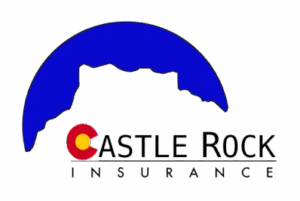In recent years, Colorado homeowners have faced a substantial rise in insurance premiums, with average rates increasing nearly 60% over the past five years. This surge, driven by escalating natural disaster risks and rising repair costs, has left residents searching for ways to manage their insurance expenses effectively.
A Closer Look at Rising Premiums
The average cost of homeowners insurance in Colorado was approximately $1,495 annually in 2018. By 2023, this figure had risen to around $2,390 per year, according to data from the National Association of Insurance Commissioners (NAIC). This 60% increase reflects the growing financial burden on homeowners, particularly as extreme weather events become more frequent and severe.
Factors Behind the Rising Costs
Several key factors have contributed to the spike in premiums:
- Natural Disasters: Colorado has seen an increase in wildfires and severe hailstorms, leading to higher insurance claims and payouts. In 2020 alone, Colorado experienced record-breaking wildfire damage, with over 625,000 acres burned and nearly $1.1 billion in insured losses. This pattern of repeated and intense natural disasters has forced insurers to adjust rates to cover the escalating costs.
- Rising Home Repair Costs: With the cost of construction materials increasing by nearly 25% from 2020 to 2022, the expense of home repairs and rebuilding efforts has also risen. Labor shortages in the construction industry have further compounded these costs, making repairs more expensive than in previous years.
The Financial Impact on Homeowners
For homeowners in Colorado, these rising premiums translate into higher monthly expenses. With the average home value in Colorado currently around $530,000, many residents are feeling the financial pinch, especially those with mortgages that require a minimum level of homeowners insurance coverage.
Strategies for Managing Higher Premiums
Despite these rising costs, homeowners can take several proactive steps to potentially lower their insurance expenses:
- Bundling Home and Auto Policies: Combining home and auto insurance policies with the same provider can often lead to significant savings of up to 20%. Castle Rock Insurance offers the convenience of bundling, which not only saves money but also simplifies policy management.
- Home Security Upgrades: Installing security systems, smart home features, and fire alarms can reduce the risk of damage or theft, making homeowners eligible for premium reductions.
- Fire Mitigation Measures: As wildfires pose a significant threat in Colorado, investing in fire-resistant landscaping, clearing brush away from the home, and using fireproof materials in renovations can lower premiums with certain insurers.
- Maintaining a Good Credit Score: Many insurance providers consider credit scores when determining rates. Homeowners with higher credit scores are typically offered lower premiums, making it beneficial to stay on top of credit management.
- Increasing Deductibles: Opting for a higher deductible can significantly reduce monthly premium costs. However, homeowners should be cautious to ensure that they have enough savings to cover the deductible in the event of a claim.
- Regular Home Maintenance: Keeping up with routine maintenance, such as roof inspections and repairs, can prevent larger, more costly issues down the road. Some insurers offer discounts to homeowners who maintain their properties and reduce potential risks.
- Loyalty Discounts: Staying with the same insurance company for several years can result in loyalty discounts, helping homeowners reduce costs over time. It’s worth asking your insurer if they offer such incentives for long-term customers.
Additional Considerations to Lower Premiums
Beyond these primary strategies, homeowners can also look into:
- Avoiding Claims for Minor Damages: Filing frequent claims, even for minor damages, can lead to increased premiums. Weighing the cost of a claim versus the increase in premiums is essential in managing long-term costs.
- Retrofitting Older Homes: For those in older homes, upgrading systems such as plumbing, electrical, and heating can result in lower insurance rates. Insurers often offer discounts for homes that have updated critical infrastructure, reducing the likelihood of major issues.
- Reviewing Coverage Regularly: It’s a good practice to review your insurance policy annually with a trusted Colorado-based insurance broker. Regular reviews help homeowners identify unnecessary coverage or gaps that need attention, ensuring that their policy meets current needs without overspending.
Planning Ahead in a Changing Market
As the frequency of natural disasters rises and home repair costs continue to climb, Colorado homeowners must remain proactive in managing their insurance needs. Consulting with a Colorado-based insurance broker like Castle Rock Insurance can help residents find personalized policies tailored to their specific circumstances and better manage rising costs. With access to over 20 personal and residential carriers, Castle Rock Insurance can offer competitive rates and a wide range of coverage options to suit your needs.
Taking preventive measures and exploring different insurance options can help mitigate the financial impact of rising premiums. Being proactive and staying informed are key steps in protecting your home and your finances in this evolving landscape.





